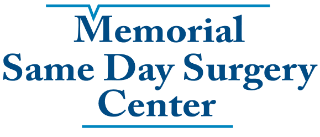Esophageal Dilation
Esophageal dilation provides relief from difficulty swallowing, or dysphagia, by carefully dilating or stretching the wall of the esophagus to allow food to pass.
One of the most common causes for this swallowing difficulty is strictures, or the narrowing of the esophagus caused by scar tissue due to acid reflux. Strictures act as a barrier to food and can eventually prevent food and even liquids from making their way down the esophagus and into the stomach. Eighty percent of esophageal strictures are related to GERD, or gastroesophageal reflux disease.
Esophageal dilation is an outpatient procedure, so you can have your procedure in an ambulatory surgery center, which can provide better accessibility and ease compared to a hospital.
What Happens During Esophageal Dilation?
You will be sedated for the procedure. The doctor will then perform an endoscopy to directly examine the esophagus and stomach. Following the examination, he may insert a thin tube with a special balloon attached to it through the endoscope which can then be inflated to gradually and gently stretch the inner wall so food and liquid will be able to pass into the stomach. Another technique involves the passage of tubes called dilators which gently and progressively stretch the narrowed area.
What are the Outcomes with Esophageal Dilation?
Patients who undergo esophageal dilation generally experience a decrease in dysphagia (difficulty swallowing). Depending on the degree and cause of narrowing of your esophagus, it is often necessary to perform repeat dilations.
Preparing for Esophageal Dilation
Patients having esophageal dilation are typically asked to not eat or drink anything for at least six hours prior to the procedure. Most medications can be continued, but you should talk to your doctor about all of your prescriptions as he/she may change your medication use or dosage.
What Happens After Esophageal Dilation?
Esophageal dilation typically causes no side effects in patients, with most returning to normal activities immediately following the procedure. If sedation is used, you will be monitored in a recovery area until you are ready to leave and will not be allowed to drive yourself home.
